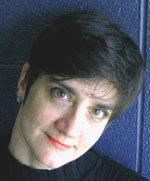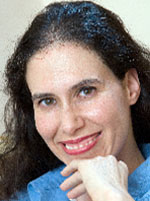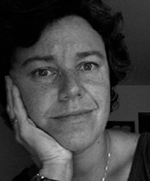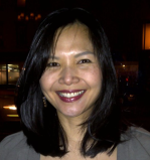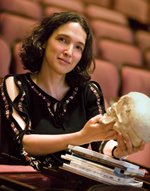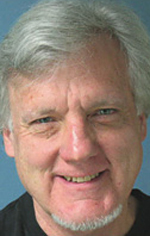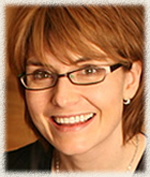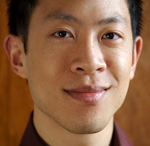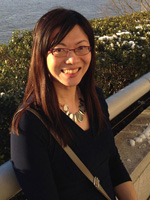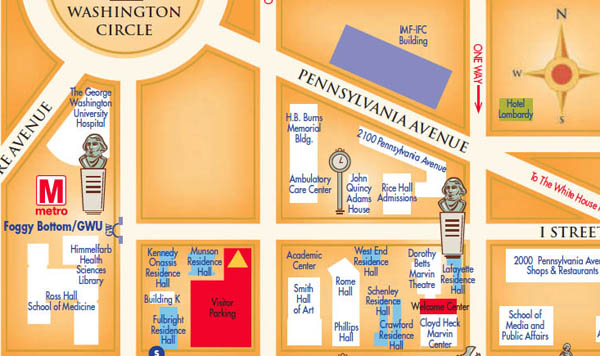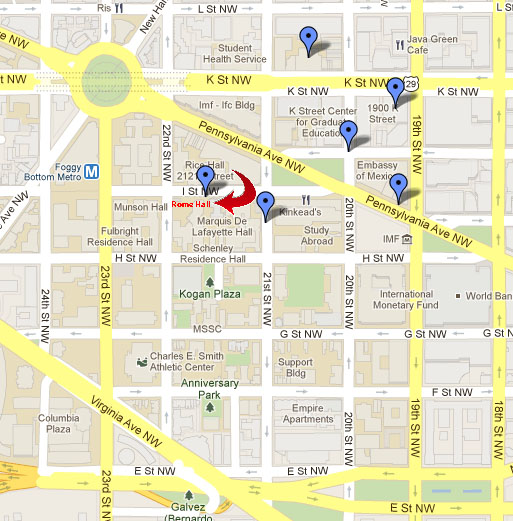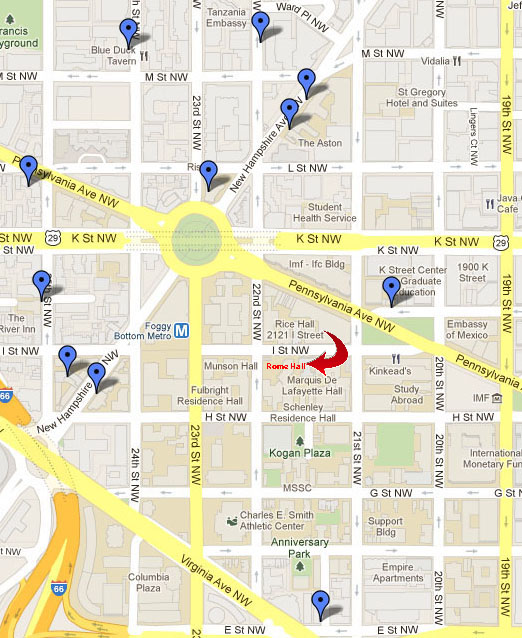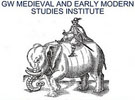Cultural Translations
Medieval / Early Modern / Postmodern Sunday, March 25, 2012
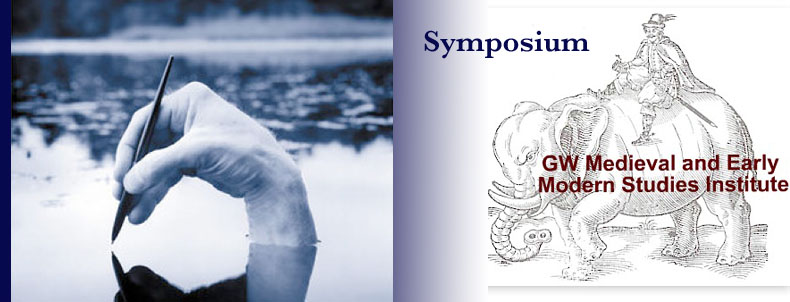
A Symposium at George Washington University
Schedule: Sunday March 25, 2012
Venue: Rome Hall 771 7th Floor 801 22nd Street, NW, Washington, DC 20052 (Intersection of Eye Street and 22nd St NW)
9:00 - 9:20 am Coffee and Tea
9:20-9:30 am Opening Remarks by Alexa Huang
Medieval
Chair: Jonathan Hsy (GW, English)
9:30-9:50 am Suzanne Conklin Akbari (Toronto, English and Medieval Studies): Translating the Past: World Literature in the Medieval Mediterranean
9:50-10:10 am Marcy Norton (GW, History): Parrots in Translation: The Amerindian Contribution to the European Pet
10:10-10:50 am Discussion
Early Modern
Chair: Lowell Duckert (GW, English)
11:10-11:30 am Barbara Fuchs (UCLA, English and Spanish & Portuguese): Return to Sender: "Hispanicizing" Cardenio
11:50 am -12:30 pm Discussion
12:30 - 1:30 pm Lunch
Postmodern
Chair: Alexa Huang (GW, English)
1:30 - 1:50 pm Peter Donaldson (MIT, Literature): The King's Speech: Shakespeare, Empire and Global Media
1:50 - 2:10 pm Margaret Litvin (Boston, Arabic and Comparative Literature): What Can Arab Shakespeares Teach the Field of World Literature?
2:10 - 2:50 pm Discussion
2:50 - 3:00 pm Coffee
Roundtable
Chair: Lynn Westwater (GW, Italian)
3:00 - 4:00 pm Roundtable on Cultural Translations
Suzanne Miller (GW, History) Peter Donaldson (MIT) Barbara Fuchs (UCLA) Suzanne Conklin Akbari (Toronto)
Translating the Past: World Literature in the Medieval Mediterranean Suzanne Conklin Akbari (Toronto, English and Medieval Studies)
Over the past decade, World Literature has emerged as an increasingly vital framework for the writing of literary histories – not just in those general overviews useful to teaching that we might provide in the classroom or assemble in the literary anthology, but also in the research paradigms we generate, especially as these are tailored to the visions of national and international granting agencies. In this presentation, I will sketch out some of the ways that Medieval Studies occupies a crucial place within the World Literature framework, both in temporal and spatial terms. The way we choose to constitute the ‘medieval’ both influences and is influenced by the ways in which we conceive of historical timelines, ranging from the long ‘peri-Renaissance’ of the fourteenth century (where ‘Renaissance’ Petrarch pre-dates ‘medieval’ Chaucer) to the pre-modern/early modern split. In each case, the temporal divide is articulated with reference to a conceptual hinge that scholars have, at some point, identified as transformative: linear perspective (or its literary analogue, the ‘discovery of the self’) in the case of the Renaissance, the printing press (or its most famous product, the Guttenberg Bible and subsequent waves of affordable religious literature) in the case of the modern. The ‘medieval’ plays a key role in the effort to rewrite literary histories within the World Literature frame not only in temporal terms, but also in spatial terms. The social geography of the Middle Ages, especially as mapped out in terms of the economic and cultural trade routes of the Mediterranean Sea, allows us to envision literary histories of the Middle Ages that run against the grain of nationalist philologies, offering counter-histories of networks of exchange that traverse religious, linguistic, and ethnic borders.
Parrots in Translation: The Amerindian Contribution to the European Pet Marcy Norton (GW, History)
1492 catalyzed a turning point in the history of human-parrot relationships. Parrots were among the earliest beings who participated in the “Columbian Exchange” of flora and fauna. Prior to contact with the Americas, Europeans viewed parrots as sacred, almost mythical creatures associated with the Orient and Holy Land; very few medieval Europeans ever encountered an actual parrot, as they were unique to the menageries of princes and potentates. Throughout the Caribbean, South America, and Mesoamerica, on the other hand, parrots – in the wild and those captured for domesticity – were ubiquitous. Parrot capture and adoption was a subset of larger phenomena by which individual members of wild animals were made into kin. This paper explores the process and consequences of the transmission of American parrots to Europe in the wake of 1492 as parrots moved through and brought together these two cultural systems.
Return to Sender: "Hispanicizing" Cardenio Barbara Fuchs (UCLA, English and Spanish & Portuguese)
Professor Fuchs will present on the recent Royal Shakespeare Company's production of Cardenio and its representation of Spain, as well as problems of intellectual property. This is part of her current book project entitled The Poetics of Piracy: Emulating Spain in English Literature.
Imagining China in a Golden Age Spanish Epic Christina Lee (Princeton, Spanish & Portuguese)
Newly arriving information about discovery of the Far East by Iberian merchants and missionaries beginning in the 1550s gave rise to Spaniards’ unprecedented desire to appropriate factual but equally extraordinary narratives about an “Orient” that traditionally had been little more than an allegory for hyperbolic exoticism. The fascination with Asia in Spain was intense but short-lived as evidenced by the rise of Juan González Mendoza’s History of the Great Kingdom of China (1585) as a best seller, with eleven Spanish editions in the first decade, and its swift disappearance from publishing houses after its last printing in 1597. Although the writers of travel accounts, chronicles, and “histories” differed in what they emphasized and at times offered conflicting details about specific geographical and cultural matters, they collectively depicted China - and to a lesser extent Japan - as having highly complex political structures analogous to those in Western Europe. My presentation explores how secular non-traveling Spaniards of the time -people who did not have a personal engagement in Asian commerce or religious missions- might have interpreted these more recent accounts in light of the prevailing views founded upon the preexisting literature (classical authorities, Medieval travel literature, and oral folklore). I begin my presentation with a survey of how various authors during this period of extraordinary curiosity imagined the Far East. I then focus my analysis on Luis Barahona de Soto’s Tears of Angelica (1586), the only extant work of imaginative literature whose main subject is the Far East. Although this epic has received scant attention from modern scholarship, it was deemed by Barahona’s contemporaries to be one of the finest literary accomplishments of his time. The main subject of the epic concerns the invasion of China and its territories by the barbarous Queen of Tartary and her eventual defeat by the forces of the Cathayan Queen Angelica and her Chinese commander. Throughout the poem, Barahona embarks on a detailed geographical and ethnographic rendering in which China is ultimately conceived as the locus and civilizing force of the entire “Oriental Indies.”
The King's Speech: Shakespeare, Empire and Global Media Peter Donaldson (MIT, Literature)
Though the recent Academy Award winning film The King's Speech (2010) maintains an impressively firm grip on the personal side of the story it tells about King George VI and his speech therapist Lionel Logue, it also locates that story in broader historical contexts. In telling its poignant story of a king whose shortcomings as a speaker were so at odds with the ever-increasing importance of the broadcasting skills he struggled to master, the King's Speech also draws on Shakespeare, who enters the narrative largely because he plays so large a role in Lionel Logue's life and view of the world. Logue quotes from Shakespeare beginning with Iago's "poor and content is rich enough" (cf. 3.3.172.) when Bertie first enters his consulting room; he performs Shakespeare speeches for his children and encourages their interest in Shakespeare by having them guess the characters he plays; he auditions for the title role in a Putney amateur production of Richard III; and he makes Shakespeare a collaborator in his therapy, convincing his client, "Bertie" the Duke of York (soon to be King George VI), to recite the "To be or not to be" soliloquy into a voice recorder to convince him of his latent vocal competence. These Shakespearean moments help to give cultural resonance to the king's courage in dealing with his disability despite his doubts and to the ironies and complexities of the Australian-born Logue's position. In addition to quotations, direct references and unmistakable allusions to Shakespeare, the film has a more subtle but significant links to Shakespeare's Henry V and to Olivier's 1944 film. The King's Speech echoes several scenes in the play -- especially the campfire scene on the eve of the battle (4.1) and the scene after the battle in which the king and Fluellen meet the common soldier who had challenged the king's pledge not to be ransomed (4.8). The King's Speech also replays aspects of the metaperformative tropes by which Olivier connects the historical Henry V, the actor who played him on the Globe stage, and his own performance in the film, thereby linking live performance to epic cinema. The succession of performance modes and media is different in The King's Speech, celebrating a more modest speaker, but, like Olivier's film, seeks to reposition the monarchy in relation to the contemporary media of global film, television and the cult of celebrity. Of course it cannot do so today without revising Olivier's triumphant, largely unclouded view of royal presence and majesty. The King's Speech does succeed in creating a more persuasive and powerful redefinition of a media-intensive British monarchy for the present day than Olivier's Henry V can any longer be, and does so principally by reimagining the subject matter of Henry V -- the story of a prince who in early life seemed unfit for kingship, who struggles as king with his father's legacy and with his relation to the common people, whose success is in doubt and requires self transformation, who becomes a leader and makes a great speech on the eve of war -- as a Shakespeare-infused disability narrative.
What Can Arab Shakespeares Teach the Field of World Literature? Margaret Litvin (Boston, Arabic and Comparative Literature)
Besides opening a new window on modern and contemporary Arab political cultures, the study of Arab/ic Shakespeare appropriation offers a model for scholars of international Shakespeare reception and, more broadly, of world literature. Taking a step back from my work on Hamlet’s Arab Journey (Princeton, 2011), this presentation will offer and illustrate three simple lessons from the Arab “case” that may be generalizable to other studies of transcultural adaptation. First: reception of a prestigious literary text is seldom direct. Almost never does a would-be rewriter first encounter a “great” work by sitting down at a desk and reading it; instead, knowledge of the text comes through what I have termed a global kaleidoscope of indirect references, adaptations, and offshoots. Second, and relatedly: intertexts are multiple, and they can hide. Everything from authorial pride to geopolitical changes can occlude the intervening web of texts from scholars’ view, leaving the adapter in apparently unmediated conversation with the prestigious source. Third: a literary or theatre culture may develop in dialogue with a “privileged interlocutor”: another high-prestige literary culture that helps determine which sources and models are available, what they are presumed to mean, and who is attracted to them. Attending to such dialogues can help avoid both a deterministic focus on “influence” and the creative free-for-all implied by the term “global kaleidoscope.” Examples from three periods of Egyptian theatre history will help illustrate why historically weighted ties between literary cultures, so obviously important in theory, can be so easily overlooked and interesting in practice.
Directions, Parking, and Hotels
The symposium is held in Rome Hall 771 on the 7th floor of "Academic Center," 801 22nd Street, NW, Washington, DC 20052 , located at the intersection of Eye Street and 22nd St NW
Foggy Bottom Campus Public Transportation Options: http://www.neighborhood.gwu.edu/transcurrentfactsheet.pdf
George Washington University's Foggy Bottom campus is centrally located three blocks from the White House. The Foggy Bottom GWU Metro Stop, located on the Blue and Orange Lines, is right on our Foggy Bottom Campus at 21st and I Streets, NW.
If you are coming from the Renaissance Society of America (RSA) conference in the Grand Hyatt (1000 H Street NW), GW is within walking distance (1.2 miles; 25 minutes on foot). You may also take the metro (three stops away; a 10-minute journey). Taxi is relatively cheap and efficient (10 minutes).
From the Grand Hyatt in DC, walk one block south to the Metro Center metro station. Take the orange line (toward Vienna) or blue line (toward Franconia-Springfield). Get off at the third stop, Foggy Bottom-GWU. See the campus map below.
Click on the following Metro map for a full map of the DC Metro system:
Rome Hall 771 7th Floor 801 22nd Street, NW, Washington, DC 20052 (Intersection of Eye Street and 22nd St NW)
One block from the Foggy Bottom/GWU metro station and across the street from the Whole Food's and GW Hospital.
Visitor Parking
Parking on campus is currently a challenge due to ongoing construction, so we strongly encourage the use of public transportation. If you choose to drive to GW, a limited number of visitor parking spaces is available in --
The parking fee is $18 per day or for a portion of the day (subject to change). On-campus street parking is available, but it is also limited and time limits are strictly enforced.
A few public parking garages (not run by GW) are also available nearby. Click here for a detailed map.
Hotels on or near the GW Foggy Bottom Campus (all within walking distance)
George Washington University Inn
One Washington Circle Hotel http://www.thecirclehotel.com/
Hotel Lombardy
State Plaza Hotel
DoubleTree Guest Suites Hotel http://www.downtowndchotel.com/
Washington Marriott http://www.marriott.com/hotels/travel/waswe-washington-marriott/
Renaissance Washington DC (Dupont Circle) http://www.marriott.com/hotels/travel/wasrw-renaissance-washington-dc-dupont-circle-hotel/
Best Western Georgetown http://www.georgetowndchotel.com/
The River Inn
Washington Suites Georgetown http://www.washingtonsuitesgeorgetown.com/
Fairmont Washington, D.C. http://www.fairmont.com/washington
Click on the following map for details:
More options here: http://www.gwu.edu/explore/visitingcampus/lodgingdining
Note: Rosslyn (Arlington, VA)--across the river--has some great hotels at affordable rates, and it is only one stop from Foggy Bottom-GWU by metro (and these hotels are next to the Rosslyn metro)
Options include: Hyatt, Marriott, Holiday Inn, Hotel Palomer, Best Western, Residence Inn, Courtyard, and more.
Lowell Duckert, lduckert@gwu.edu
or
Acknolwedgements
|
||||||||||||||||||||||||||||
